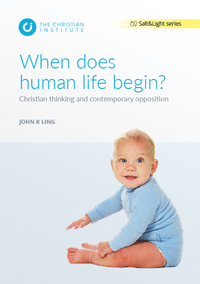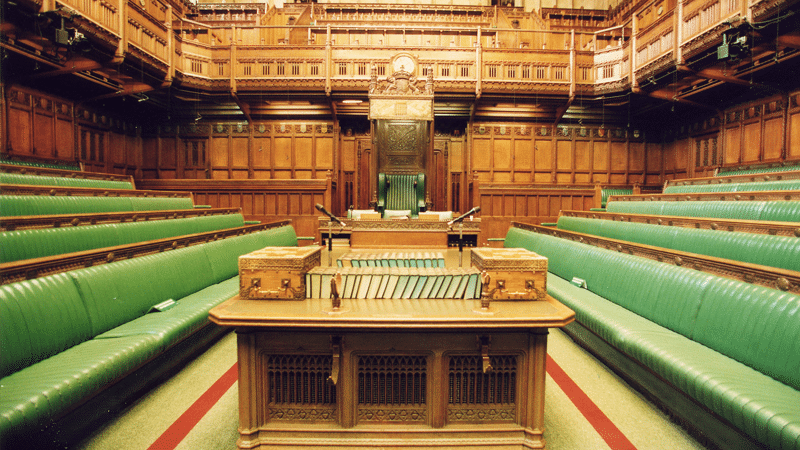Parliament has voted to further liberalise abortion law in England and Wales, despite pleas to protect unborn children and their mothers.
MPs approved Antonia Antoniazzi’s New Clause 1, an amendment to the Government’s Crime and Policing Bill, which will allow a woman to kill her unborn baby at any stage of pregnancy without sanction, by 379 votes to 137. They also rejected a proposal to reinstate in-person consultations under the pills-by-post scheme.
In Great Britain, abortion is currently permitted for most reasons up to 24 weeks, and up to birth if the unborn child is deemed to have a disability. If the Government’s Crime and Policing Bill becomes law, inducing a miscarriage outside of these exemptions will no longer be a crime for the mother.
Late-term abortions
Antoniazzi, whose New Clause 1 is endorsed by abortion giant BPAS (the British Pregnancy Advisory Service), recently told Times Radio that she was ‘comfortable with any woman ending a pregnancy at any time’.
During the debate, she claimed that the limited protections still afforded to the unborn after the Abortion Act was passed in 1967 were cruel, unjust, not in the public interest, and a carry-over from the ‘Victorian era’.
An amendment by fellow Labour MP Stella Creasy, to enshrine abortion as a ‘human right’ in British law and decriminalise all abortions for whatever the reason — including sex-selective abortions — did not go to a vote.
‘The voiceless child’
A number of MPs spoke against decriminalisation, including TUV’s Jim Allister, who asked “whether there is any other area of law governing the taking of life in which the guardrails of the criminal law have been removed? That is what New Clause 1 proposes when it comes to the voiceless child. Is there no thought of protection for them?”
Labour’s Rachael Maskell urged MPs to “consider the baby’s safety as much as the woman’s safety”, while Carla Lockhart (DUP) told the House: “I believe that both lives matter in every pregnancy — both the mum’s life and the child’s life.”
Her party colleague Toby Perkins challenged the notion that the proposal is only “a very narrow change”, noting “in actual fact she is asking us to ensure not just that in such cases the police should act differently, but that in every case ever no woman can ever be prosecuted”.
Rebecca Smith, Conservative MP for South West Devon, placed on record her “grave concerns about this hurried attempt to significantly alter our nation’s abortion laws”. She also highlighted ComRes polling which “reveals that only 1% of the public support the introduction of abortion up to birth”.
‘No legal deterrent’
Conservative MP Dr Caroline Johnson said her work as an NHS consultant paediatrician, where she had “held babies in her hands from 21 weeks and six days’ gestation right through to birth”, meant that she did not believe “a baby should be terminated right up to term”.
Father of the House Sir Edward Leigh warned of the dangers of decriminalisation while the pills-by-post scheme remained in place, whereby “women would be able to perform their own abortions — for example, with abortion pills, which can now be obtained without an in-person gestational age check — up to birth, with no legal deterrent”.
The Government’s Special Envoy for Freedom of Religion or Belief, David Smith, said: “I have heard it said that no woman would induce an abortion after 24 weeks, but we cannot introduce such a profound change in abortion law on the basis of a simple hope that no woman would take such a drastic step.”
‘Deplorable’
The Christian Institute’s Director, Ciarán Kelly, described Parliament’s decision as “deplorable”.
He said: “An unbearably large number of babies — more than ten million — have been killed in Britain since the passing of the 1967 Abortion Act. Now MPs have voted to ditch one of the few remaining safeguards protecting the unborn.
“They have done so with little or no regard for the welfare of expectant mothers. DIY abortions, at home, late in pregnancy, dramatically increase the likelihood of complications endangering women’s health.”
The Bill will now progress to the House of Lords. As it stands, New Clause 1 will come into effect as soon as the legislation is enacted.
Christian thinking and contemporary opposition
John R Ling
When does human life begin? It is a fundamental and decisive question because your answer reveals your understanding of the nature and status of the human embryo. It also shapes your stance on the big bioethical issues of the day such as abortion, cloning and embryonic stem cell research. There are many voices sowing confusion, but the Bible is unmistakably clear that human life begins at conception. In this booklet, John Ling provides a wide-ranging explanation of biblical truth, the historical Christian perspective and evidence from modern science to support this position.


